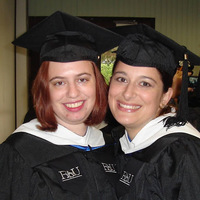Research Interests:
Research Interests:
Research Interests:
Research Interests:
Research Interests:
Research Interests:
Research Interests:
This study investigates how U.S. citizens petitioning for “green cards” on behalf of foreign national spouses uphold the U.S. racial project as they navigate the spousal reunification process. It also explores the role of online... more
This study investigates how U.S. citizens petitioning for “green cards” on behalf of foreign national spouses uphold the U.S. racial project as they navigate the spousal reunification process. It also explores the role of online communities as crucial “brokers” and mediators between citizen, noncitizen, and the state. This work troubles the dichotomy between immigration officers/couples while giving primacy to the citizen-spouse’s voices. Using content analysis of an online forum where petitioners exchange advice with similar others, I show the citizen’s complicity with the racialized hierarchical order of the American nation. Ultimately, family migration policies and regulations are exercises in state-building, and nation-building, and citizens partake in it while trying to secure their own family, disciplining themselves to align with the state’s ideal of what a proper fu-ture nation should look like.
Research Interests:
I argue that scholars study the Internet as a social institution. This study employs a critical literature review of multi-disciplinary scholarship on the Internet, the family, and adjacent institutions comparing it to Patricia Yancy... more
I argue that scholars study the Internet as a social institution. This study employs a critical literature review of multi-disciplinary scholarship on the Internet, the family, and adjacent institutions comparing it to Patricia Yancy Martin’s (2005) fourteen criteria of social institution to demonstrate how the Internet represents a new social institution, worthy of inquiry through its fourteen defining characteristics of endurance (persistence over time), social practices, conflicts, power struggles, identity formation, and change, among other criteria (Martin 2004; 1256). I, then, I discuss the potential starting points of digital data research methods for newcomers to the field, such as data acquisition, coding potential, and approaches to analysis.Conceptualizing the Internet as a social institution will ultimately improve the evaluation of peer-reviewed digital research, expand social theory more broadly, elevate our awareness of the Internet’s sociality, and subject the interc...
Research Interests:
This study investigates how U.S. citizens petitioning for “green cards” on behalf of for-eign national spouses uphold the U.S. racial project as they navigate the spousal reunifi-cation process. It also explores the role of online... more
This study investigates how U.S. citizens petitioning for “green cards” on behalf of for-eign national spouses uphold the U.S. racial project as they navigate the spousal reunifi-cation process. It also explores the role of online communities as crucial “brokers” and mediators between citizen, noncitizen, and the state. This work troubles the dichotomy between immigration officers/couples while giving primacy to the citizen-spouse’s voices. Using content analysis of an online forum where petitioners exchange advice with simi-lar others, I show the citizen’s complicity with the racialized hierarchical order of the American nation. Ultimately, family migration policies and regulations are exercises in state-building, and nation-building, and citizens partake in it while trying to secure their own family, disciplining themselves to align with the state’s ideal of what a proper fu-ture nation should look like.
Foreign nationals who marry U.S. citizens have an expedited track to naturalization. U.S. immigration officials require that “green card” petitioning couples demonstrate that their relationships are “valid and subsisting” (i.e., for love)... more
Foreign nationals who marry U.S. citizens have an expedited track to naturalization. U.S. immigration officials require that “green card” petitioning couples demonstrate that their relationships are “valid and subsisting” (i.e., for love) and not fraudulent (i.e., for immigration papers). These requirements are ostensibly gender and racially neutral, but migration itself is not; men and women petitioners seek partners in different regions and solicit advice from similar others about the potential obstacles to their petitions’ success. Using an online ethnography and textual analysis of conversation threads on a large online immigration forum where U.S. petitioners exchange such information, I examine how gendered standards of legitimacy are applied to family and sexuality and used discursively among petitioners to achieve genuineness and define red flags indicating potential marriage fraud. I argue that forum members police immigration requests even before cases reach an immigration...
Research Interests:
Research Interests:
Research Interests:
Every year, hundreds of thousands of Americans apply for green cards and citizenship for their non-American spouses. And while gender and race-based discrimination is a thing of the past in US immigration policy, new research from Gina... more
Every year, hundreds of thousands of Americans apply for green cards and citizenship for their non-American spouses. And while gender and race-based discrimination is a thing of the past in US immigration policy, new research from Gina Marie Longo reveals that gender inequality is alive and well in the forums where petitioners seek immigration advice. Studying over 2 million online conversations about immigration, she finds that the advice given is often gendered and racialized depending on petitioners’ race and gender, and on their spouse’s country of origin.
Research Interests:
Review of the book The Afterlife of Reproductive Slavery: Biocapitalism and Black Feminism’s Philosophy of History, by Alys Eve Weinbaum.
